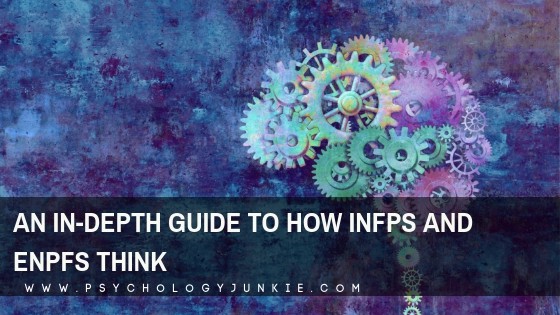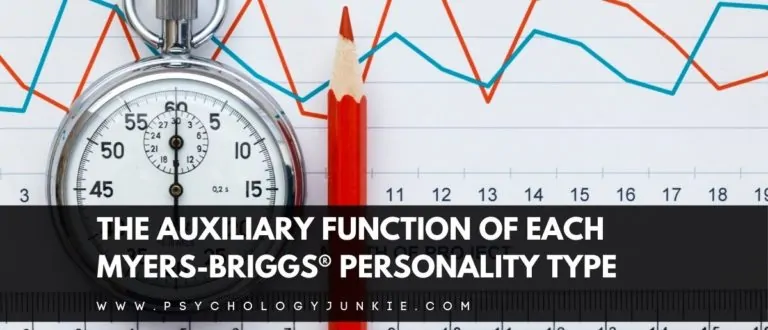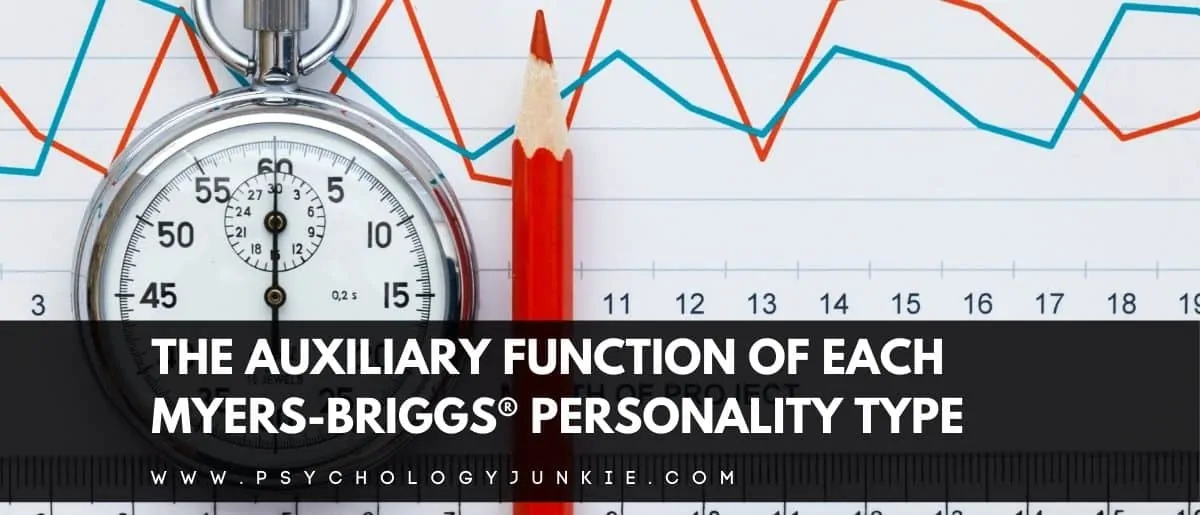An In-Depth Guide to How INFPs and ENFPs Think
Did you know that each personality type has a unique way of thinking, making decisions, and absorbing information? While every individual is unique, there are patterns in information-processing that span across people of the same (or similar) types. Today we’re going to look at the INFP and ENFP personality types. How do they process information? What kind of data do they consider when they make decisions? What are their weaknesses? These are the kinds of questions we’ll be exploring today.
Not sure what your personality type is? Take our new personality questionnaire!

An In-Depth Guide to How INFPs and ENFPs Think
In order to get in-depth into the NFP way of thinking, we need to first examine the cognitive function “stacks” of each of these two types. These stacks tell us which mental processes these two types rely on the most.
The ENFP Cognitive Function Stack
Dominant: Extraverted Intuition (Ne)
Auxiliary: Introverted Feeling (Fi)
Tertiary: Extraverted Thinking (Te)
Inferior: Introverted Sensing (Si)
The INFP Cognitive Function Stack
Dominant: Introverted Feeling (Fi)
Auxiliary: Extraverted Intuition (Ne)
Tertiary: Introverted Sensing (Si)
Inferior: Extraverted Thinking (Te)
A Look At “Ne”
Ne is all about inferring relationships and finding connections. NP personality types notice threads of meaning that branch out across relationships, events, and objects. They look for what could be and how things could be transformed. They look for inferences, meanings, hypotheses, and abstract possibilities or epiphanies. They gather data in clusters – nothing stands alone. It’s all connected, and they just have to mentally attach one thread of meaning to another.
An NP type can struggle to make decisions because the more information they get, the more possibilities open up before them. Their brain literally multiplies options on its own without incurring much effort. This makes them skilled at coming up with innovative strategies and solutions. This ability also means that they can typically find options in situations that seem hopeless to other types.
Information and Decisions – Intuition with Feeling
ENFPs and INFPs combine Ne with another process called Introverted Feeling, or “Fi” for short. While Ne is all about gathering information and finding connections, Fi is the process that provides judgment. Fi tells the NFP what to do with all that data they’ve collected.
ENFPs start with data-collection and openness and then narrow down their options into a judgment or value-based decision (Fi).
INFPs start with a judgment or value-based reasoning (Fi), then extrapolate possibilities and connections (Ne).
ENFPs and INFPs are idealists. They strive to be mediators, inspirers, and catalysts for change in the world around them. Ne brings them all the possibilities and shows them all the abstract meanings and ideas. Fi guides the NFPs into a decision that aligns with their values, their sense of self, and their personal ethics.
A Look at “Fi”
“Fi” is just a short way of saying “Introverted Feeling”. Fi is focused on staying in alignment with one’s own subjective values. It evaluates the importance of everything and is focused on being congruent and authentic. Fi doesn’t want to do anything that would be a betrayal of one’s own ethics, beliefs, desires, or core motives in life. It asks questions like, “What’s really important here?” “What is of value to me?” “Is this hypocritical?” “Is this sincere?” “Am I being true to myself?”
ENFPs and INFPs value justice, freedom, and individuality. They look for inner harmony and clarity, and they accomplish this through testing morals, values, and ethics to determine what feels ultimately right and true to them. Fi isn’t about accepting societal values or what “the world” says is right. It’s about questioning outer values and looking inward, wrestling with darkness and light, to wind up with a subjective, deeply-held truth or ethic.
Fi is focused on the individual rather than the collective. While ENFPs and INFPs gather massive amounts of information via Intuition, their decisions are personal and not influenced by value systems of their culture. This gives these two types a certain non-conformist quality that many admire and some struggle to accept.
Because Fi is so aware of maintaining internal harmony and congruency, NFPs are attuned to when others are feeling internal distress or are acting in a way that defies their values. They are very sensitive to any signs of manipulation, hypocrisy, or dishonesty. Because they value sincerity and personal integrity to such a high degree any sign of something opposed to that stands out very quickly. I like to call these types “Human lie detectors” for this reason.
Objective Logic
INFPs and ENFPs will primarily use Ne and Fi when they are gathering information and making decisions. However, there’s a third part to their thinking that we can’t ignore: Extraverted Thinking. This mental process, called “Te” for short, is how NFPs keep from becoming overly subjective. For the ENFP, Te is the third-preferred, or tertiary, process. For the INFP it’s the inferior function, or fourth process. Let’s take a look at how this shows up for both types.
What is “Te?”
Te is a decision-making process. However, where Fi looks at subjective values and ethics, Te looks at objective facts and procedures. Te wants to institute systems of organization in the world around it. It evaluates, decides, and completes tasks by focusing on the most logical choice. It is very goal-oriented and seeks to create clarity and order in the environment. Te is able to spot illogic and inconsistencies very quickly and strives to be reasonable and logical at all costs.
ENFPs and Te
ENFPs have Te in their tertiary position. They prize efficiency and admire people who are skilled in creating it. They may learn new scientific theories or re-organize their desk to make it easier to find the things they need most. At other times they might live in disorder and feel angry at people who try to impose rules or structure on them. ENFPs can experience a love-hate relationship with Te which often shows up in their relationships. ENFPs in early life might bicker with TJ personality types, seeing them as overbearing or unfeeling. However, as ENFPs get older, particularly in mid-life, they often find themselves appreciating TJ personality types. They are more drawn to thinking-based activities and more comfortable with structured and organized ways of life.
Healthy ENFPs will check their Fi-based decisions with Te. They’ll try to make sure that everyone is treated fairly and equally, they’ll create contingency plans, organize their day to achieve their goals, and look for logical flaws in their reasoning.
Unhealthy ENFPs can either:
A – Reach overly-subjective decisions without checking for logic.
B – Make a Fi-based plan, but fail to create an organized plan of action, and therefore their plan fails.
C – Get stuck in a “Ne-Te loop,” bypassing their values and ethics. They might become suddenly harsh, bossy, and focused on the “end justifying the means.”
INFPs and Te
INFPs have Te in the inferior, or fourth, position. This is an area that tends to trip them up or be a source of insecurity for them. INFPs value Fi so strongly that they risk overrunning Te or simply ignoring it because they are so focused on the personal impacts of their decisions. They have such a strong need to honor their personal preferences and values that Te can seem like an opposing force they have to control or stifle. INFPs who repress Te for too long suffer from poor judgment calls, low self-confidence, and difficulty with structure and achieving goals. They can feel that the world is too harsh, people too unfeeling, or tasks insurmountable. These kinds of struggles tend to be more present in young INFPs who haven’t had the chance to grow and develop this process yet. As INFPs grow and mature, they typically develop more strength with Te. This results in them checking their Fi-judgments against logic. They are also better able to prioritize their time and reach the goals that they set for themselves.
Does low Te mean INFPs aren’t smart?
Absolutely not. Inferior Te does not have any impact on academic prowess or intellectual thought. The most common impact it might have in the classroom is one where INFPs can struggle to organize their time to complete their homework by the deadline.
INFPs “In the Grip”
When INFPs are extremely stressed they can fall “into the grip” of Te. Te suddenly “takes the wheel” from Fi in their decisions. If you’re an INFP and you’ve ever had spurts of uncharacteristic behavior under stress you know what this is! You might become abnormally cold, controlling, sarcastic, or cynical about life. You might aggressively try to make sure things are done the “correct” way or frantically try to pull your life together or organize at ask. You may try to deaden your emotions and feelings, only focusing on the cold, hard facts.
Healthy Te for INFPs
INFPs should engage Te in small spurts throughout the day to become more adept at using this function. This should always be done during a stress-free time so that it doesn’t cause a “grip” reaction. Healthy Te makes INFPs much more balanced in their decisions, more effective in their goals, and more productive in what they can accomplish.
Some quick and easy ways to practice Te:
- Make a list of all your current daily activities. Which are necessary and which are needless?
- Pick a goal you have set for yourself and make it measurable. Instead of, “I want to learn French” change it to “I want to learn 10 new French words each week.”
- Organize your workspace so that you can accomplish your daily tasks more easily.
- Have a discussion with someone who disagrees with a value of yours. Using logic, try to convince them of the validity of your viewpoint. Listen to them as they debate their side. Accept any faulty logic or inconsistency in your current position.
- Ask yourself how to make a daily chore more efficient.
Health and Details
Introverted Sensing (Si) is the third or fourth function for the INFP and ENFP respectively. Without Si, NFPs would lose all sight of wellness, consistency, and inner stability. This is the function that gives them internal balance and reminds them of what’s real in the world.
What is “Si?”
Si is a mental process that compares and contrasts what’s happening now with what happened in the past. It is attuned to changes and patterns and notices when a detail doesn’t match what was there before. Si values practical application and favors tried-and-true, evidence-based reasoning. It grounds individuals in the world around them and makes them attentive to details, risks, and practical matters. Si is also a function that promotes inner-body awareness. It’s what helps you to define your level of hunger, thirst, cold, or heat. Valuing Si means that one often favors tradition, routine, dependability, comfort, and practicality.
INFPs and Si
For INFPs, Si holds the tertiary position in their function stack. INFPs see Si as a source of renewal, comfort, and pleasure. They often have rituals and habits that make them feel peaceful and relaxed; whether that’s watching a favorite movie on a particular date, listening to a particular CD, or having specific flowers by their bed. They appreciate blending past lessons with future possibilities and ideas. In their early years, INFPs can ignore Si or find people who value it (SJs) as overly-traditional or closed-minded. However, as they develop and mature, INFPs start to see the value in Si. They become healthier in their habits, more grounded in their perspectives, and appreciate the calm, pragmatic nature that accompanies Si.
Healthy INFPs check their ideas and predictions against Si. They balance their yearning for the unknown with a sense of what’s worked before. They enjoy daydreaming and creating endless options, but they also take time to tend to their daily needs and physical comforts.
Unhealthy INFPs can either:
A – Become so fixated on idea-generating and chasing their ideals that they forget to take care of themselves and become physically malnourished or sick.
B – Get carried away with their ideas and values and become detached from reality.
C – Get stuck in a Fi-Si “loop” where they become too immersed in their routine comforts and subjective values. They become anxious about new options and possibilities and prefer to stick with what they know.
ENFPs and Si
ENFPs often experience Si as a pesky weakness that trips them up. While they aspire to use it well, they often ignore it or see it as less evolved or important than Ne. As a result, they may forget about their daily physical needs on a regular basis. It’s not uncommon for ENFPs to get so caught up in ideas and possibilities and goals that they forget to eat, drink, or rest. They can also become so fixated on creating something new or transforming something that they “reinvent the wheel” and waste unnecessary time and resources. ENFPs who accept Si and develop it balance their idea-seeking nature with a reverence for reality and what’s already proven to work. They balance chasing their ideas with taking care of their bodies.
ENFPs “in the Grip”
When ENFPs are extremely stressed they can experience moments of “grip” Si behavior. When this happens, they lose their typical open-minded nature and can’t find options no matter how hard they try. They become more anxious, irritable, and apprehensive. Fear of illness or unknown physical symptoms tends to plague them. They mull over past mistakes and worry that they’ll never be able to get beyond their failures. It’s also common for them to develop “tunnel vision” and become fixated on completing one project or staying in a routine that makes them feel safe.
Healthy Si for ENFPs
ENFPs who don’t repress Si, but value it and give it a space in their lives, are often healthier and happier individuals. Developing Si shouldn’t be a monumental task. Simply taking a few peaceful moments of the day to tune into it can help ENFPs to become more balanced.
Some quick and easy ways to develop Si:
- Tune into the moment. Are you happy, relaxed, stressed, tired, thirsty? Take a moment to tend to any physical needs that come to your attention.
- Get a massage and really focus on how each stroke releases physical tension.
- Think of a task you’ve wanted to get done. Now write down the sequential steps that are needed to accomplish that task. Make sure to start at the beginning.
- When you find yourself brainstorming, try to remember lessons from the past or solutions that you know from experience.
- Look at the traditions in your life. What are some positive traditions and routines that would make you happier or healthier?
Summing It Up…
ENFPs and INFPs both have great strengths and abilities. They both are able to create options that are original and innovative. They see connections that pass other people by and are determined to live a life of integrity and personal authenticity. As they develop and mature they also balance this with an awareness of the facts and a desire to create effective systems and structures. They’re not just idealists, but they are doers. They make things happen and work effectively to create change and improvement. They also learn how to take care of their physical needs and value the lessons and wisdom that have lived on through past generations.
Find out more about your personality type in our eBooks, Discovering You: Unlocking the Power of Personality Type, The INFJ – Understanding the Mystic, and The INFP – Understanding the Dreamer. You can also connect with me via Facebook, Instagram, or Twitter!
Want to Find Out More? Check Out These Articles:
The Unique Intelligence of ENFPs, ENTPs, INFPs and INTPs
3 Weird and Wonderful Secrets About the ENFP
10 Things You’ll Relate to if You’re an ENFP
7 Ways That INFPs Make an Impact
10 Things That Excite the INFP Personality Type
3 Weird and Wonderful Secrets of the INFP Personality Type














Fantastic for ENFP…so helpful.
I like to call these types “Human lie detectors” for this reason.
We also detect pretence and self-lie.
And when we try to be the ones who lie or pretend for once, we are immediately caught, with comical ease, by whoever.